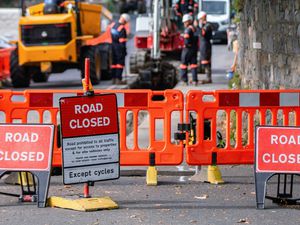Symbolic resistance was enough
EVEN 65 years after the event, it is clear that the German Occupation still generates extreme emotion. From the anniversary celebrations in the summer to the reunions held in the UK to mark the evacuation of so many local children, the memories of that shattering time run deep.
EVEN 65 years after the event, it is clear that the German Occupation still generates extreme emotion. From the anniversary celebrations in the summer to the reunions held in the UK to mark the evacuation of so many local children, the memories of that shattering time run deep.
But perhaps the most potent undercurrent is the allegations that islanders – or at least some of them – were guilty of collaboration with their Nazi overlords.
Over the years, some authors have made much of alleged collusion and have drawn such conclusions from remarkably skimpy sources.
A further indication of the strength of feeling about the claims is revealed by actor John Nettles, who received threatening letters over his Channel Islands at War programme for merely having raised the issue.
What is a welcome addition to our understanding of those dark times is the research – assisted by this newspaper – conducted by Gilly Carr, a Cambridge University archaeologist, which has drawn on material produced by former chief reporter Frank Falla.
As a result, she has concluded that 'the file is incredible. Resistance in the Channel Islands was different: it was not organised and was unarmed – individuals and small groups doing small acts of silent and symbolic resistance.'
That might not suit the island's critics, but it is so clearly the closest to the truth that we can now get. Why? Only those who experienced the Occupation know how hellish it was, particularly towards the end as food and other essentials dried up. Can anyone who understands Guernsey people contemplate for one moment that they liked losing their freedom?
With around three German soldiers to every island resident, anything other than symbolic resistance was at best futile and at worst likely to trigger savage reprisals against the civilian population.
There may have been individual acts of collaboration, but they were in a minority.
It is by the actions of the majority who laboured with stoic resentment and hope of liberation for five long years under the yoke of enemy oppression that the island should be judged.





